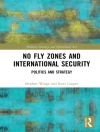With entries from leading international scholars from around the world, this eight-volume encyclopedia offers the widest possible coverage of key areas both regionally and globally. The International Encyclopedia of Political Science provides a definitive, comprehensive picture of all aspects of political life, recognizing the theoretical and cultural pluralism of our approaches and including findings from the far corners of the world. The eight volumes cover every field of politics, from political theory and methodology to political sociology, comparative politics, public policies, and international relations.
Entries are arranged in alphabetical order, and a list of entries by subject area appears in the front of each volume for ease of use. The encyclopedia contains a detailed index as well as extensive bibliographical references. Filling the need for an exhaustive overview of the empirical findings and reflections on politics, this reference resource is suited for undergraduate or graduate students who wish to be informed effectively and quickly on their field of study, for scholars seeking information on relevant research findings in their area of specialization or in related fields, and for lay readers who may lack a formal background in political science but have an interest in the field nonetheless.
The International Encyclopedia of Political Science provides an essential, authoritative guide to the state of political science at the start of the 21st century and for decades to come, making it an invaluable resource for a global readership, including researchers, students, citizens, and policy makers.
The encyclopedia was developed in partnership with the International Political Science Association.Key Themes:
- Case and Area Studies
- Comparative Politics, Theory, and Methods
- Democracy and Democratization
- Economics
- Epistemological Foundations
- Equality and Inequality
- Gender and Race/Ethnicity
- International Relations
- Local Government
- Peace, War, and Conflict Resolution
- People and Organizations
- Political Economy
- Political Parties
- Political Sociology
- Public Policy and Administration
- Qualitative Methods
- Quantitative Methods
- Religion
Over de auteur
Leonardo Morlino is Professor of Political Science and Director of the International Research Center on Democracies and Democratizations at LUISS, Rome. He was President of the International Political Science Association (IPSA) (2009-12). He is the author of more than 30 books and more than 200 journal essays and book chapters published in English, French, German, Spanish, Hungarian, Chinese, Mongolian, and Japanese. His most recent books include: Changes for Democracy (Oxford UP, 2011), Democracias y Democratizaciones (CIS, 2008); Democratization and the European Union: Comparing Central and Eastern European Post-Communist Countries (Routledge 2010, with W. Sadurski), International Actors, Democratization and the Rule of Law: Anchoring Democracy? (Routledge 2008, with A. Magen). He was also one of the three editors of the International Encyclopedia of Political Science (8 voll., Sage Publications, 2011), that won the Honorable Mention of Darthmouth Medal for reference publishing in all domains of knowledge. Morlino was Professor of Political Science at the University of Florence and at the Istituto di Scienze Umane in Florence and has held a number of visiting professorships. In 2002-03 he was the Bechtel Visiting Professor at Stanford’s Graduate School of Business; in 1995 visiting fellow at the Hoover Institution; and in 1989-90 NATO Fellow of the Center for European Studies, Stanford University. His academic credentials also include stints as the Monte dei Paschi Fellow at St. Anthony′s College, Oxford (2010), the Jemolo Fellow at Nuffield College, Oxford (2007 and 1998); visiting professor at the Juan March Institute, Madrid (1995-96); and visiting professor at the Institut d’Etudes Politiques, Paris (1993-95, 2006, 2009, 2013). Morlino is a leading specialist in comparative politics with expertise on Southern and Eastern Europe, with a focus on phenomenon of democratization. Now he is directing a new research on the impact of the 2008-14 economic crisis of the six European large democracies.












